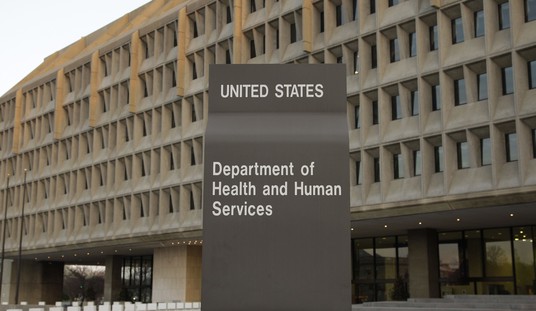This seems rash.

Put aside the civics debate on the virtues of representative government versus direct democracy. Purely from a standpoint of self-interest, I figured Republicans would be cool to this idea. We … haven’t done so well in national elections lately, particularly in the popular vote. Democrats reliably outnumber Republicans in measures of registered voters, and the Democratic turnout machine is bound to get better as they leverage Team Obama’s big-data advances from last year. As a group, House Democrats actually got more votes in 2012 than House Republicans did. Why any GOPer under those circumstances would prefer to boot big issues towards the public and away from the Republican House and filibuster-empowered Senate Republican minority is … not obvious. Populism unto death?
My hunch is that support for national popular referendums tends to rise if you’re the out party and wane if you control the White House. Low-information Republicans probably figure that a referendum is their only way around an Obama veto for the stuff they want, not realizing that it’s also the Democrats’ only way around Boehner and McConnell. Given the expected surge in Latino turnout, how do you think a national up-or-down vote on the Gang of Eight bill would go? (And before you say “but Republican turnout would surge too!”, remember that comprehensive reform tends to poll well generally. If you’re expecting some massive united Republican vote in opposition, you’re kidding yourself.) Also, some of the righty love for referendums might be a byproduct of the Prop 8 saga. The vote in California was social conservatives’ biggest win on gay marriage in the past five years. With the feds and courts tilting heavily towards the liberal view, some GOPers may think that the only way back to traditional values is putting it to a vote nationally. And I think they’re right — that would be their best shot in the near term, with polls showing the country still roughly equally divided, to stop gay marriage cold. What happens in 10 years when Democrats ask for a re-vote, with millions of millennials having replaced millions of elderly voters in the interim?
Two obvious meta-points here, too. One: National popular referendums are not so federalist-y. You can counter that by insisting they’ll only be used for truly federal matters, but c’mon — who thinks that principle will last over time? If one side or the other of the gay marriage debate thought they had 51 percent to legalize or illegalize gay marriage coast to coast, how strongly would they resist to urge to do it in the name of states’ rights? National referendums are an invitation to centralization. Two: If you want to see how disastrous referendum-mania can be in practice, look at the history of California over the past 35 years. Give the public a chance to vote for big spending and low taxes, whatever that means for deficits, and they’ll happily do so every time. (Of course, so will Congress, so maybe this point is moot.) And referendums are like potato chips — you can’t stop at just one. Although the logistics of holding national votes would limit them somewhat compared to state referendums, each side would start making out its referendum wishlist, dictated largely by its special interests. (Er, again, just like Congress.) Before long, you’d have big chunks of policy being set by direct votes. America has enough problems from bad decisions made by low-information voters. Do you want them directly setting budgets too?
Anyway, rant over. Do note, though, that Gallup also found majorities across the board in favor of a national primary and limiting the presidential campaign to just five weeks before election day. Second look at a 50-day presidential blog frenzy?







Join the conversation as a VIP Member